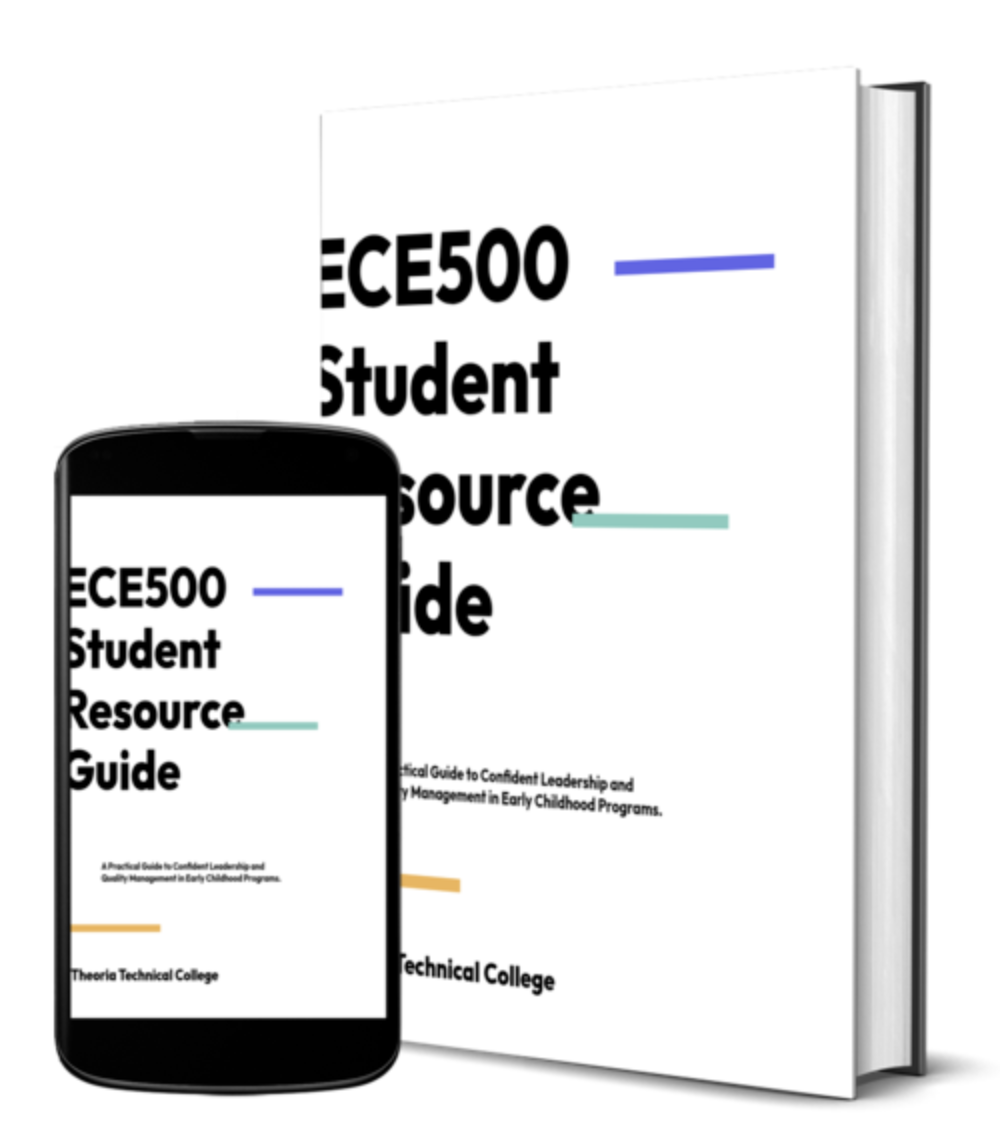ECE 500 Student Resource Guide
Welcome to Your Journey in Early Childhood Program Leadership

Welcome to Your Journey in Early Childhood Program Leadership
Welcome to the ECE-500 Student Resource Guide, your companion for navigating the world of Early Childhood Program Administration and Management. Whether you're a current director, an aspiring administrator, or simply passionate about leading with purpose in early care and education, this guide is here to support your journey. This resource is designed as a supplement for students who may not have access to the textbook, Planning and Administering Early Childhood Programs (11th Edition). Our aim is to ensure that every student can engage meaningfully with the course concepts and apply them in real-world early learning settings.
Each chapter follows a structured format to help you understand key ideas, explore practical examples, build your vocabulary, and reflect deeply on what it means to lead and manage an early childhood program. You will find chapter overviews, outlines, key terms with applied examples, study aids, and summaries — all crafted to help you succeed.
In the second half of this guide, you’ll find a collection of sample discussion posts and peer responses, model assignments, and an exam prep section—all designed to help you better understand course expectations and succeed in every component of ECE-500.
This guide is designed with three essential goals in mind. First, it serves as a practical companion to the course concepts by providing structured study aides, sample discussion posts and responses, model assignments, and an exam preparation section. These resources are included to help you better understand expectations, build confidence, and succeed in ECE-500.
Second, it bridges the gap between leadership theory and administrative practice, offering real-world scenarios, reflective prompts, and actionable strategies that mirror the responsibilities you'll encounter as a program administrator. Each chapter highlights how foundational leadership principles—such as ethics, collaboration, communication, and strategic planning—can be applied to create effective and responsive early childhood programs.
In addition, this guide includes valuable discussion post samples, assignment examples, and exam preparation tools—all designed to help you succeed in the course and build
confidence in your role as an early childhood educator.
Third, this guide promotes a comprehensive approach to program leadership that balances compliance with creativity, structure with empathy, and vision with practicality. It emphasizes the importance of being both a manager and a mentor: someone who understands financial management, licensing requirements, curriculum oversight, and staff development, while also fostering a safe, inclusive, and high-quality environment for children, families, and educators.
What You Will Discover

